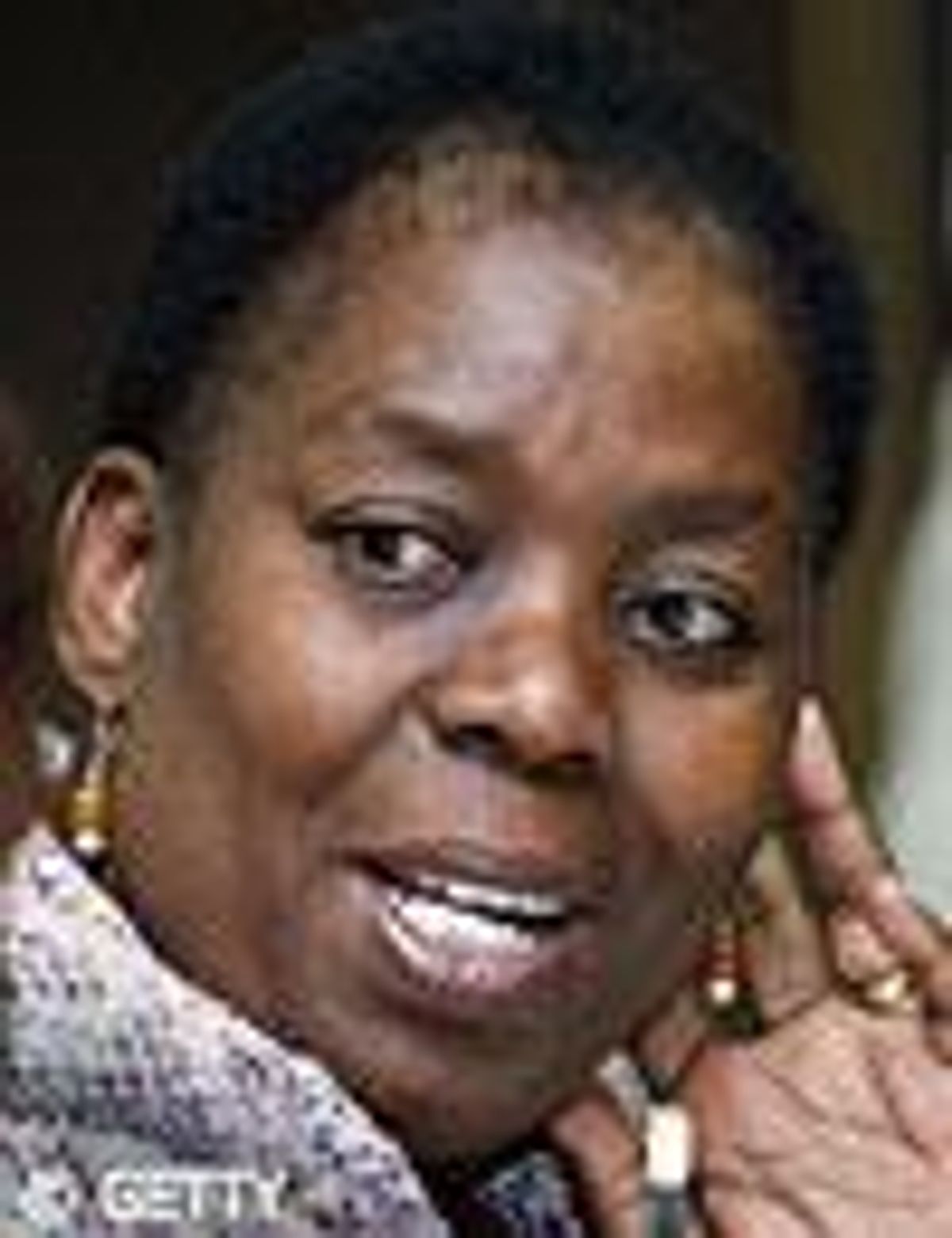South Africa's
deputy health minister, one of its most respected women
politicians, lost her job on the eve of the nation's Women's
Day.
Nozizwe
Madlala-Routledge was credited with revamping a beleaguered
campaign against AIDS, earning the respect of AIDS activists
who had blasted her boss, Health Minister Manto
Tshabalala-Msimang, for her promotion of garlic and
lemons as a remedy for AIDS and her open mistrust of
antiretroviral medicines. President Thabo Mbeki fired
Madlala-Routledge late Wednesday following reports that she
had gone to Spain to attend an AIDS conference without
his permission.
Madlala-Routledge's aides told a newspaper earlier this week
that there had been a mix-up in dates and she had
already arrived in Spain by the time she received word
from the president that she should not go. Since then
she has made no comment, but AIDS activists said Thursday
she would address a press conference Friday.
A two-paragraph
statement from the presidency, released just before
midnight, gave no reason for the dismissal.
Opposition
parties and AIDS activists reacted to the dismissal with
shock and outrage Thursday.
''This is a
dreadful error of judgment that will harm public health care
and especially the response to the HIV epidemic,'' the
Treatment Action Campaign said in a statement. ''It
indicates that the president still remains opposed to
the science of HIV and to appropriately responding to
the epidemic.''
Patricia De
Lille, leader of the small Independent Democrats party,
noted the dismissal came ''just hours before the dawn
of our 13th Women's Day,'' calling it ''an insult to
every single South African woman who has the courage
to stand up for the truth.''
Mbeki--whose own record fighting HIV has been
criticized by AIDS activists--is a staunch ally
of Health Minister Tshabalala-Msimang.
Tshabalala-Msimang was ill for nine months and has only
recently resumed her duties. During the health
minister's illness, Madlala-Routledge mended fences
with the activists in the Treatment Action Campaign and the
mainstream medical community and was one of the driving
forces behind a new five-year plan that has made
reducing the number of new HIV infections one of its
main targets and aims to extend treatment to 80% of
those with AIDS by 2011.
Doctors, trade
unionists, and international organizations such
as UNAIDS celebrated that South Africa had finally
emerged from an era of mistrust and confusion over
AIDS.
But when
Tshabalala-Msimang returned to work in June after a liver
transplant, her first public gesture was to snub South
Africa's national AIDS conference on the grounds that
her deputy had been given a more prominent speaking
role than she had.
''If full control
of the AIDS program is now back in the hands of Health
Minister Manto Tshabalala-Msimang, we can expect an end to
the optimism and vision of recent months, and a
progressive new approach, and a return to the dark
ages of denialism,'' said Mike Waters, health spokesman for
the main opposition party, the Democratic Alliance.
Madlala-Routledge
and Tshabalala-Msimang are among several women
prominent in South African politics. Mbeki was hailed when
he appointed Phumzile Mlambo-Ngcuka as deputy
president, and the country has a number of women at
the helm of key ministries, such as foreign affairs.
The South African
parliament also has the highest proportion of women
legislators in Africa due to the ruling African National
Congress's policy that 33% of its members should be
women.
But despite the
gains made to improve conditions for women in the last
decade, millions are still battling poverty, discrimination,
and abuse.
About 75% of
African women under 30 are jobless, while in 2002 women held
only 14% of positions at top management level, with black
women holding only 2% of these positions.
Women also suffer
the most from the AIDS pandemic and bear the brunt of
the country's high rate of murder and rape with a staggering
52,617 women raped in the last year.
The recent
murders of three lesbians showed that South Africa was
celebrating National Women's Day in a climate of violent
homophobia and sexism, the New York-based Human
Rights Watch said Thursday.
Last month the
bodies of Sizakele Sigasa and Salome Masooa were found
with fatal bullet wounds in a field in Soweto. Sigasa had
been an activist for the rights of people living with
HIV or AIDS as well as lesbian, gay, bisexual, and
transgender people's rights.
While police have
refused to speculate on the motive for the murders, it
is feared that the two women were the latest in the growing
number of lesbians killed for their sexual
orientation.
''Despite legal
commitments to equality for all, lesbians in South
African townships are still targeted for rape and murder,''
Jessica Stern, researcher with the Human Rights Watch,
said in a statement.
The South African
government will look more closely at crimes against
women, Mbeki said at a Women's Day event Thursday, the South
African Press Association reported. Mbeki said nothing
about Madlala-Routledge's dismissal. (AP)


















































































